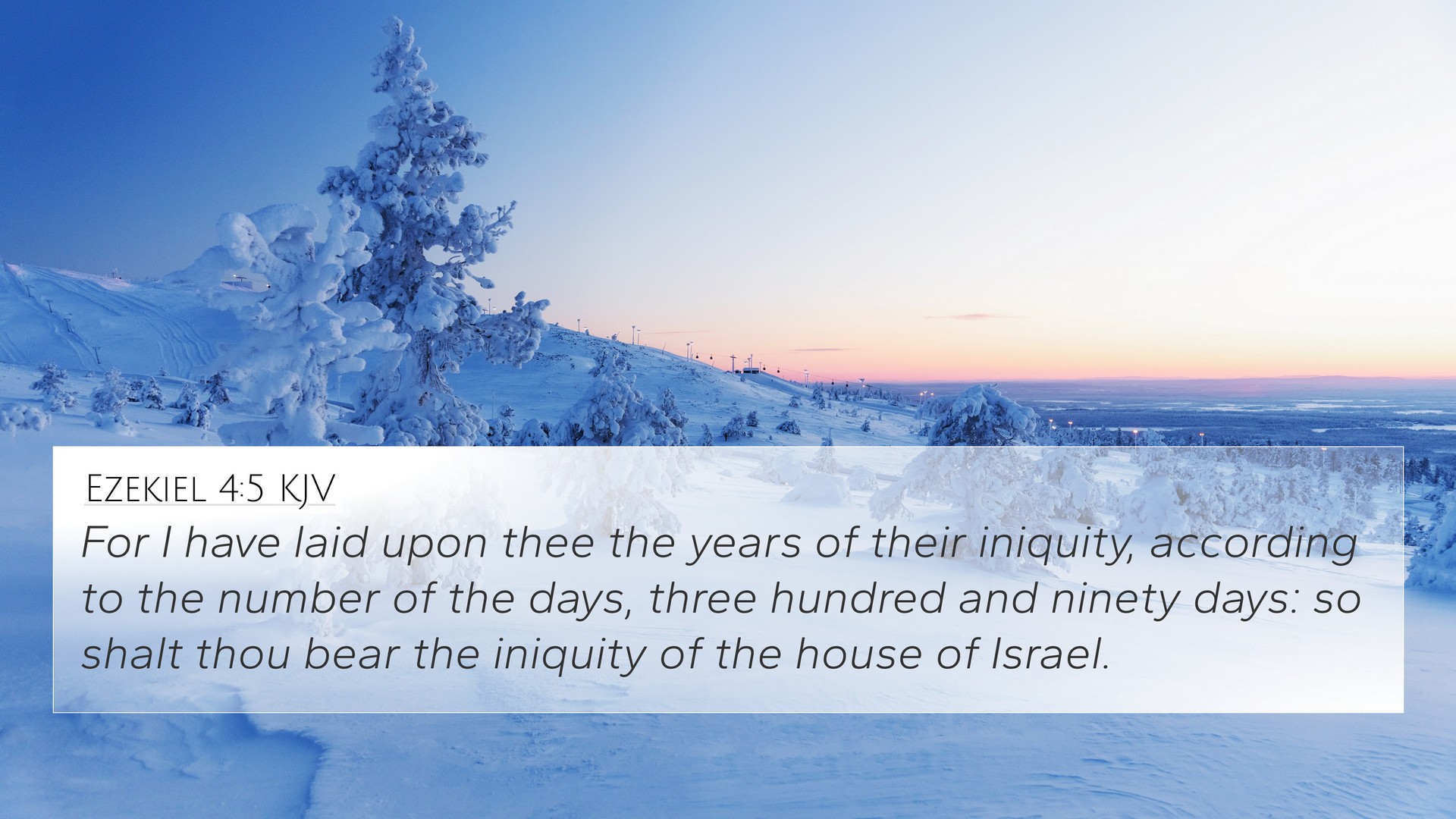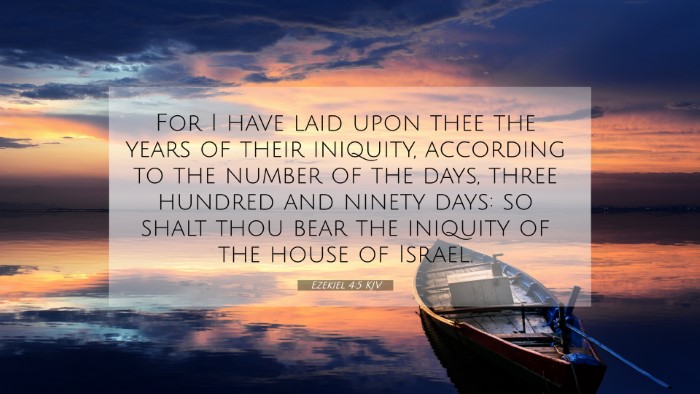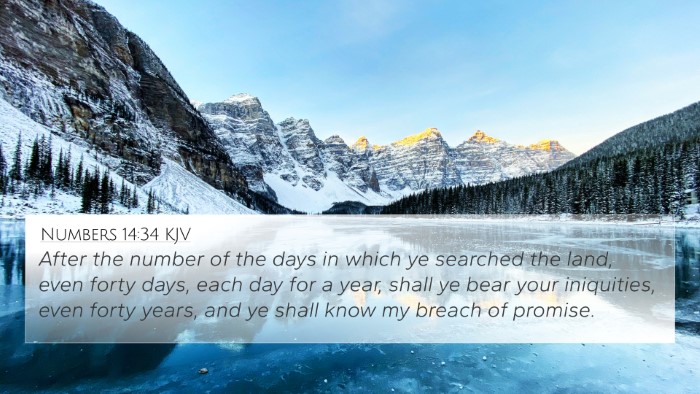Ezekiel 4:5 - Summary and Meanings
Bible Verse: Ezekiel 4:5 - "For I have laid upon thee the years of their iniquity, according to the number of the days, three hundred and ninety days: so shalt thou bear the iniquity of the house of Israel."
Overview of Ezekiel 4:5
This verse is part of the prophetic actions performed by Ezekiel, intended to represent the sins and iniquities of Israel during their period of exile. The act of bearing the iniquity is symbolic, illustrating the seriousness of sin and the consequences that follow.
Interpretations from Public Domain Commentaries
Matthew Henry's Commentary
Matthew Henry emphasizes the weight of sin and its implications. He notes that Ezekiel's actions were not just for personal bearing but were representative of the nation’s collective sinfulness. The period of 390 days serves as a poignant reminder of Israel's long history of iniquity, which must be accounted for, depicting God's justice and the seriousness of sin.
Albert Barnes' Notes
Albert Barnes focuses on the significance of the number of days, linking it to the years of Israel's transgression. The days coincide with the tenure of their sins, pointing to a prophecy of length that signals a lengthy punishment. He illustrates that these actions serve as both a warning and a teaching moment, calling Israel to repentance and recognition of their faults.
Adam Clarke's Commentary
Adam Clarke adds a deeper theological perspective, discussing how the iniquity represents not merely individual acts but systemic disobedience to God's commands. Clarke highlights the starkness of God’s response to sin and the reality of divine judgment that is communicated through Ezekiel's actions. The idea of bearing iniquity resonates throughout Scripture and correlates with the theme of atonement.
Cross-References to Ezekiel 4:5
Ezekiel 4:5 connects with several other scriptures that enhance our understanding of sin and punishment, as well as the compassionate call for repentance. The following references are significant:
- Leviticus 26:18 - Discusses the consequences of disobedience and the possibility of lengthening punishment.
- Ezekiel 18:30 - Calls Israel to repentance from all offenses, reinforcing the need to turn from their sins.
- Numbers 14:34 - Highlights the principle of bearing iniquity for a specified period based on the actions taken against God's will.
- Isaiah 53:6 - Describes the iniquities of all, pointing to a collective sinfulness that must be acknowledged.
- Jeremiah 14:20 - Acknowledges the iniquities and admits the weight of transgressions before God.
- Romans 6:23 - Connects iniquity with the consequences of sin, presenting the stark reality of spiritual death as a wage for transgression.
- Galatians 6:7 - Reinforces that one reaps what they sow, echoing the themes in Ezekiel regarding the results of individual and collective actions.
- 1 Peter 2:24 - Points to Christ bearing our sins, reflecting the ultimate fulfillment of bearing iniquity for redemption.
- John 1:29 - Describes Jesus as "the Lamb of God, who takes away the sin of the world," correlating with the theme of collective guilt and the need for atonement.
- Hebrews 9:28 - Discusses how Christ was offered once to bear the sins of many, paralleling the prophetic symbol in Ezekiel.
Understanding Through Cross-Referencing
The connections between Ezekiel 4:5 and these other scriptures highlight a broader narrative about sin, repentance, and God's justice. This verse serves as a pivotal reminder of the obligations Israel had to acknowledge their sin and the inevitable consequences that arise from turning away from God. By engaging in cross-referencing Biblical texts, readers can gain a more comprehensive understanding of themes throughout Scripture.
Tools for Cross-Referencing
For those looking to dive deeper into Bible cross-referencing, here are some valuable resources:
- Bible concordance - A tool to find specific verses and their thematic connections.
- Bible cross-reference guide - Guides that indicate direct connections between verses.
- Cross-reference Bible study - Methods for systematic study connecting themes and ideas across Scripture.
- Bible reference resources - Compilations of references helpful for in-depth study.
- Comprehensive Bible cross-reference materials - Full compilations of cross-references for scholarly work.
Conclusion
Ezekiel 4:5 serves as a profound reminder of the gravity of sin and the consequent need for repentance and reconciliation with God. By understanding this verse within the broader framework of biblical teaching and using cross-referencing methods, believers can fortify their faith and comprehension of God’s holiness and grace.
As you study this verse, consider how it connects with others throughout the Bible that address themes of iniquity, such as repentance and redemption. What verses relate to Ezekiel in your understanding, and how can they inform your faith journey?




